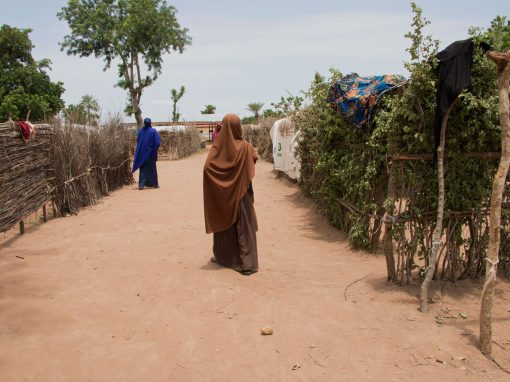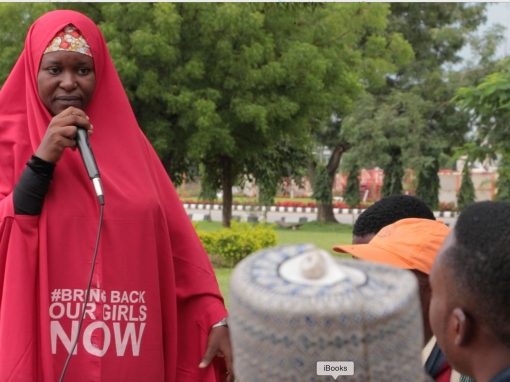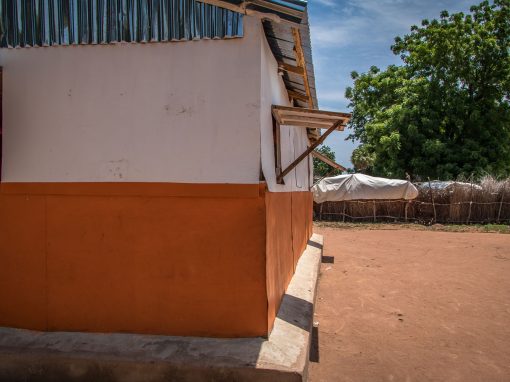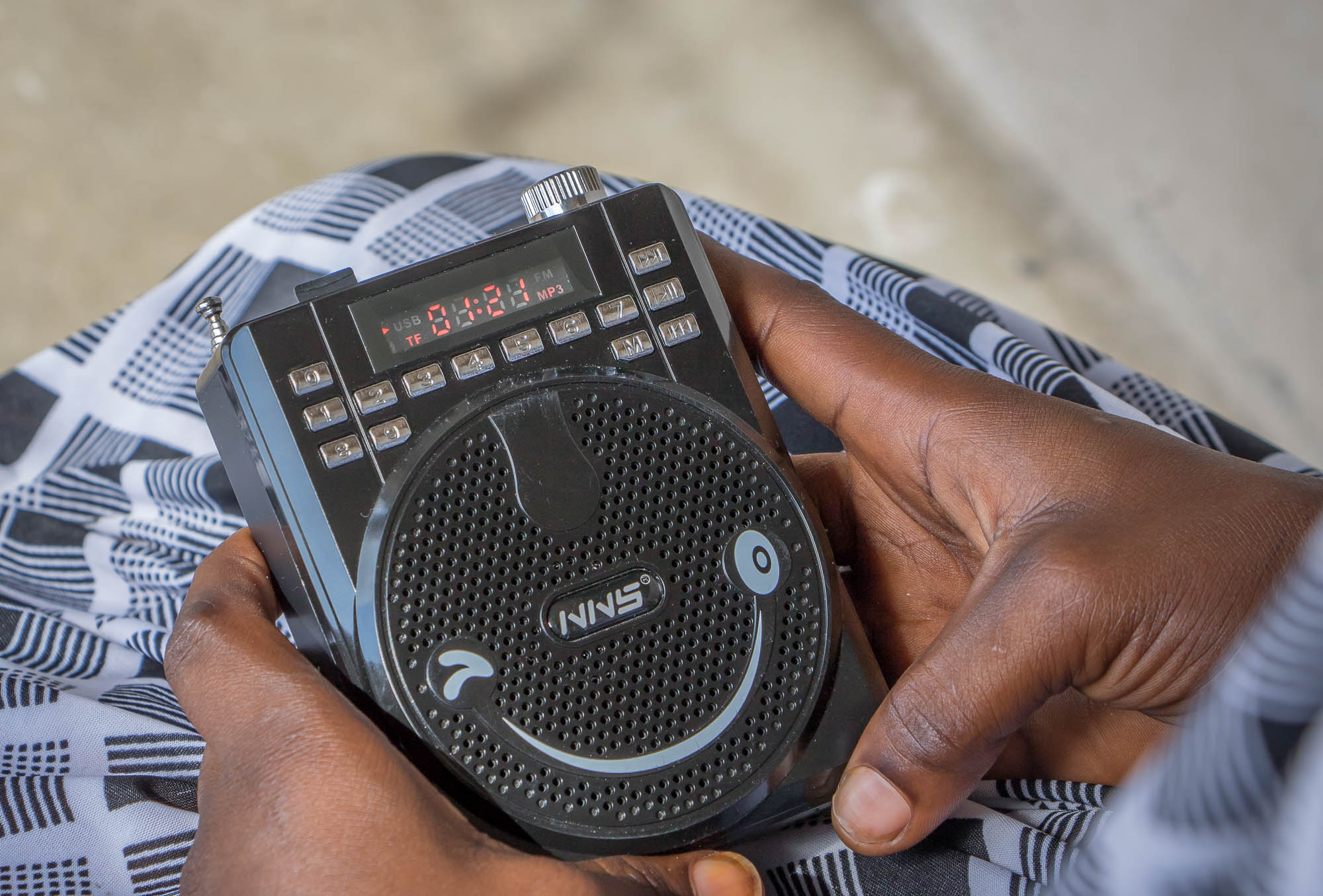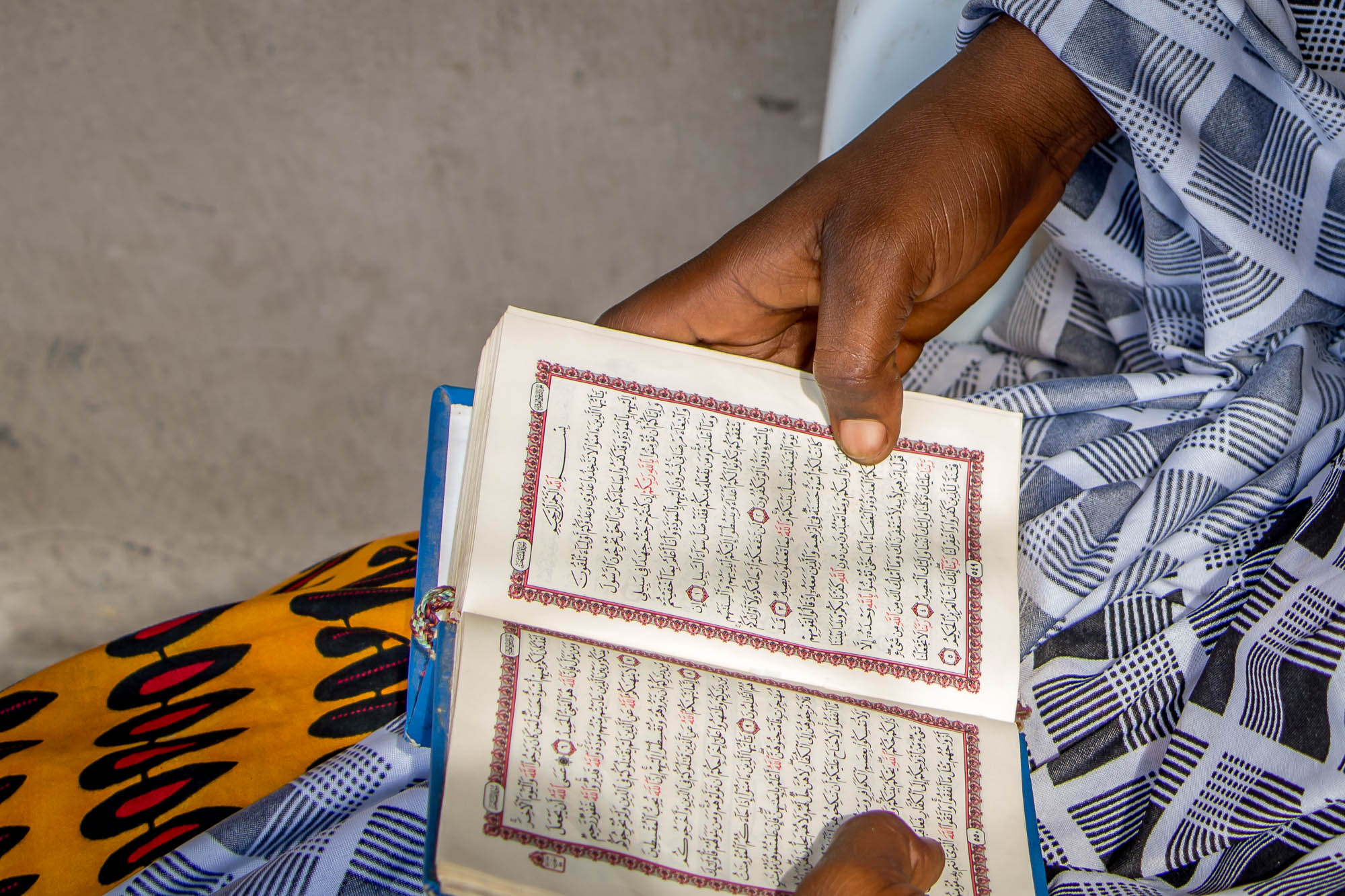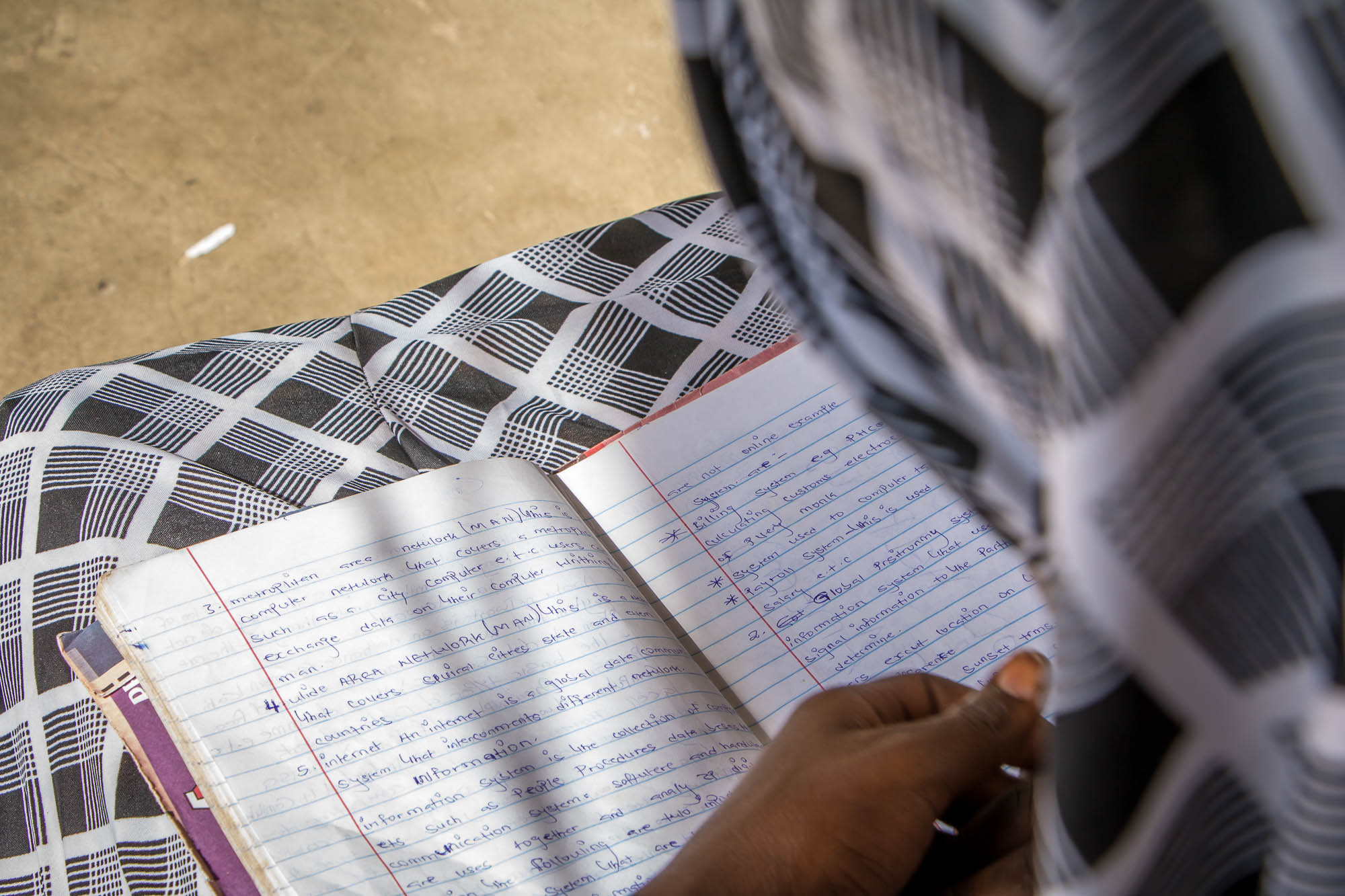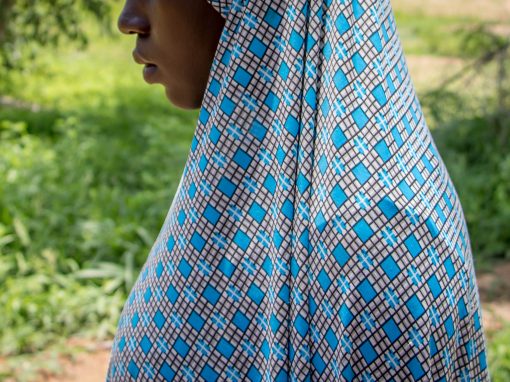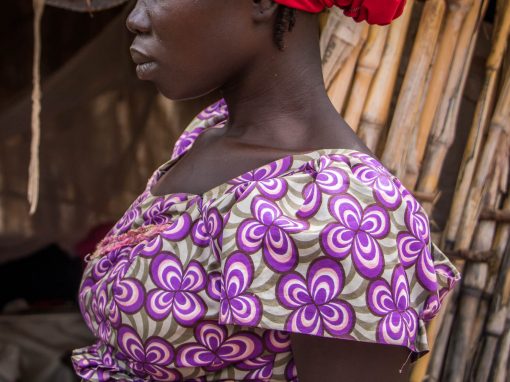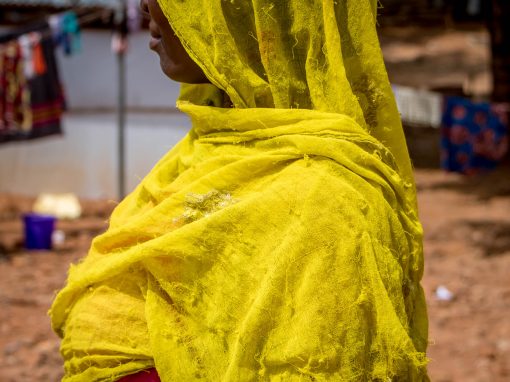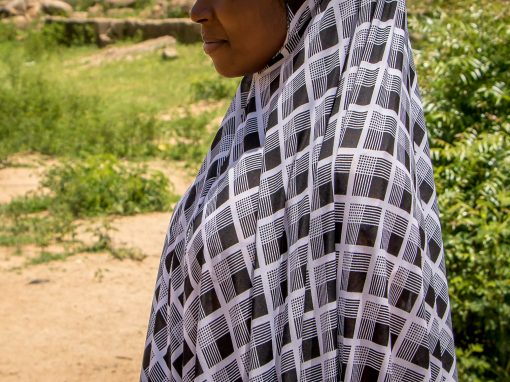Rukayyah
Rukayyah, 17, had lived at the hideout for one year and a month. Boko Haram assigned her to the slave yard for the first five months. It was her duty to wash the clothes, fetch the water, and to pound and cook for more than one hundred people.
Rukayyah told me that the wahala – a Nigerian word that is used to describe varying levels of difficulty – was enormous.
So, when she was presented with a choice to remain a slave or to marry, she opted for a Boko Haram marriage.
Even as a captive, marriage had its benefits. She owned her own room in a makeshift house built with wood, bamboo and zinc.
Prrah!
Rukayyah jolted out of her siesta.
Prrah! Prrah! Prrah!
The Boko Haram terrorists had not warned anyone that they would be testing their weapons, as they usually did. She left her room to find out what was happening.
“Infidels have attacked us,” one of the Boko Haram guards rushed in to tell her and the other women in the house. “Don’t be scared. Stay inside the house. We’re going to face them.”
She returned to her room and waited.
Prrah! Prrah! Prrah!
When the gun battle finally ended, the men who entered the house were dressed in camouflage uniforms. Government soldiers. The so-called infidels.
The house was soon filled with piercing screams from women who were unhappy to see the soldiers.
“Boko Haram wives, we are leaving with you,” Rukayyah recalls the soldiers barking.
The women refused.
Rukayyah objected, too.
It’s hard to say for sure why these women did not want to leave with their liberators. But a strong possibility is “traumatic bonding” – more popularly known as the Stockholm syndrome.
“It occurs when there are experiences of abuse by a perpetrator, and these experiences are followed, intermittently, by something positive,” said Connie Kristiansen, a professor of psychology at Carleton University.
“So it’s sort of like pairing cruelty with random acts of kindness. That cycle will create an incredibly strong bond.”
Survivors of this kind of trauma see the world through their abuser’s eyes, and try to predict their mood as a way of staying safe. But they lose their own perspective of the world and start to believe the rationalizations of their abuser, Kristiansen added.
This could explain why despite being kept captive, and witnessing the horror that their captors are capable of, these women didn’t want to leave.
As for Rukayyah, she had tried to escape when she still lived at the slave yard but was caught and warned. Boko Haram threatened to kill her if she made a second attempt. And she liked her so-called husband. She said he had treated her well.
The soldiers dragged the women to their trucks, pulling some of them by the hijabs that draped their bodies.
The women continued to resist. Some of them said they preferred death to any form of alliance with infidels.
By the time the soldiers left with the women, there was no sign of Boko Haram. They were either dead or had fled into the forest.
The air was thick with the stench of explosives. Rukayyah said the camp smelled like burned matchsticks.
Abduction
Rukayyah heard gunshots for the first time in 2014. She was in her village, Izge, in northeastern Nigeria, fetching water at the river with five friends. This was their late afternoon routine.
Rukayyah sensed danger even though she didn’t know what the sound was. She ran home with her friends.
As she approached her house, she saw a group of men, Boko Haram members, gathering the entire village. They wouldn’t let her enter her own home.
“They told us to stand where we were,” Rukayyah said about the instruction she received. “They said they were taking us away.”
By the end of that day, more than one hundred people were dead, most of them people she knew. Nearly three dozen women, including Rukayyah, were abducted.
Rukayyah had heard about Boko Haram before, from stories people told about the fighters’ killing sprees in villages far away from hers. She feared them the way one fears something far away. She didn’t think she would one day witness their terror.
After she was abducted, Rukayyah’s mother and grandmother, both of whom managed to escape, moved to Yola, a town about 275 kilometres away. They spent their days and nights praying Rukayyah would be found. But whatever hope they had, diminished as the months passed. On some days, they mourned and accepted that they would never see her again.
Rukayyah’s uncle, Isa, continued to be optimistic. He talked to his friend who worked with the Nigerian Army about Rukayyah’s abduction. One year passed before Isa received a text message from his friend saying Rukayyah may have been found.
Returning home
Rukayyah was found in Yola, at a government-run camp for people who had been displaced by Boko Haram. For two weeks she answered questions from the Nigerian Army about her knowledge of Boko Haram and its operation.
Her uncle Isa went to the camp to take her home.
“She was totally changed,” said Isa. He noticed that she had lost a substantial amount of weight.
“She was not herself,” he added.
It was still not safe enough to return home, so Rukayyah stayed in Yola with her oldest uncle Joseph.
But Muslim relatives such as Isa supported her decision. This immediately sparked a disagreement between the Muslim and Christian members of Rukayyah’s family.
In the middle of this dispute, Rukayyah found out she was two months pregnant.
Another debate ensued in the family. Some members asked her to abort the pregnancy since it was still early. Others told her to keep it.
They left her to decide. She chose to keep the baby.
But when she went out in the community, people pointed fingers. They called her a Boko Haram wife. They said she carried a Boko Haram baby, and reminded her that her unborn child was fathered by a person whose group had killed their relatives and destroyed their land.
“I wanted to die,” said Rukayyah.
The discrimination from her family and community was a trigger. She would talk to herself. She wished to go on a suicide mission for Boko Haram. She wished to return to the forest. When she heard about successful Boko Haram attacks, she celebrated.
“Back then she was not a human being,” said her uncle Isa, who was a voice of reason and calm during that period.
“It’s your fate. God chose this for you,” he used to say to her.
She starts to cry as she tells me about this.
Her uncle Joseph threw her out of his house. But Isa accepted her into his home in Mubi, a town in northeastern Nigeria.
I meet Rukayyah in Mubi where she has been living with Isa for more than a year. She has a new name here, and no one knows about her past. She’s back in school. Her favourite subject is biology. She wants to become a doctor some day. Aisha, her uncle’s wife, has been teaching her how to make traditional hats.
Photo gallery
Isa plans to make her dreams of becoming a doctor come true, if he can afford it. But some of her family members still refuse to accept her.
Click on an image below to read the story
